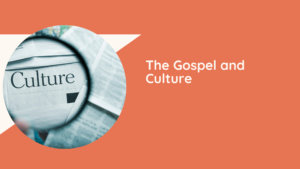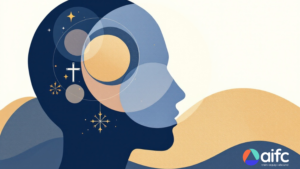Throughout history dated back to the work of Locke and Rosseau, various attempts have been made to understand play and a number of approaches including psychodynamic, social learning and cognitive theories have been proposed to respond to children’s play behaviours (Frost, Wortham & Reifel, 2005). Despite the lack of one succinct definition of play, its relation to child development and learning has been widely explored and understood as one of the fundamental principles of early childhood pedagogy (Wood, 2004). Although the relationship between play and child development and learning is complex, a play-based pedagogy or learning through play can be described as “ a context for learning through which children organise and make sense of their social worlds, as they actively engage with people, objects and representations” (DEEWR, 2009, p.46).
Obviously, play presents a number of generally agreed characteristics. In fact, play is intrinsically motivated, relatively free of externally imposed rules, carried out as if the activity were real, focuses on the process, dominated by the players and requires the active involvement of the player (Rogers & Sawyers, 1988). Play also portrays traits such as “symbolic, meaningful, active, pleasurable, voluntary, rule-governed and episodic” (Dockett & Fleer, 1999, p.15). Play is about having fun and has to be “work if you tell us to do something “(Dockett & Fleer, 1999, p.19). It brings together all the different components of a child’s development and is “a truly holistic way of learning” (Brennan, 2004, p.3).
Play is fluid and flexible, embedded in the physical, social, cultural and environmental context in which a child lives. Through play, a child learns about the world, oneself and others. By being engaged in quality play experiences, a child is able to develop language, behaviour management, risk taking, making choices and meaning and problem-solving skills.
Most importantly, play serves as a window and medium to reflect, reinforce and result in a child’s development. Perhaps the clearest demonstration of the close relationship between play and children’s development occurs in the physical domain, where play is a significant contributor to the acquisition of gross- and fine-motor skills. Through play, children’s physical and manipulation skills, involving eye-hand coordination, are discovered, challenged and refined. Secondly, play usually forms the backbone for early development in the cognitive and language domains. It accelerates children’s intellectual capacity and enriches language skills. It also functions as a catalyst for children’s cognitive development: for example, in making choices, and, later, for using abstract thinking, distinguishing between appropriate and inappropriate information, directing activities, understanding rules and roles, and for solving problems (Johnson, Christie & Yawkey, 1999). Thirdly, play stimulates children’s social and emotional development. It provides opportunities to understand their identity in social settings and to make sense of the world through interaction with family and neighbourhood (Frost et al., 2005). At the same time, play can foster emotional growth through the expression and control of feelings.
So children learn through play. Children have the right to be engaged in fun and informal play that they initiate and unfold in familiar settings, within close relationships and with greater freedom to play. Play forms a basis for a “stretch towards further possibilities” (Van Hoorn, Nourot, Scales & Alward, 1993, p.3) and can offer children “experience and opportunities” which processes their learning and development towards the adult stage (Kitson, 2005, p.18). Adults can contribute to children’s play by playing a role of listeners, observers, providers, facilitators, managers, advocates and supporters as children unfold and share their learning story each day (Hamilton & McFarlane, 2005).
By Eun Kyong Park (Sophia)
Cred. BA (Linguistics), BEd (ECE)(Hons, Macq), Adv.Dip.CFT, Cert.4.TAE., MEd (Syd. process)
REFERENCES
Brennan, C. (2004). Power of play: A play curriculum in action. Dublin: IPPA, The Early Childhood Organisation.
Department of Education, Employment and Workplace Relations (DEEWR). (2009). Belonging, being and becoming: The Early Years Learning Framework for Australia. Canberra: DEEWR.
Dockett, S., & Fleer, M. (1999). Play and pedagogy in early childhood: Bending the rules. Victoria: Nelson Australia.
Frost, J., Wortham, S., & Reifel, S. (2005). Play and child development (2nd ed.). New Jersey: Pearson Education.
Hamilton, N., & McFarlane, J. (2005).Children learn through play. Putting Children First, the Newsletter of the National Accreditation Council (NCAC), 14, 10-11.
Johnson, J., Christie, J., & Yawkey, T. (1999). Play and early childhood development (2nd ed.). New York: Longman.
Kitson, R. (2005). ECH113 Curriculum play in early childhood: Theory and practice (Lecture note week 1&2). North Ryde, Australia: Macquarie University Institute of Early Childhood.
Rogers, C. S., & Sawyers, J. K. (1988). Play in the lives of children. Washington DC: National Association for the Education of Young Children.
Van Hoorn, J., Nourot, P., Scales, B., & Alward, K. (1993). Play at the center of the curriculum. New York: Macmillan.
Wood, E. (2004). Developing a pedagogy of play, in A. Anning, J. Cullen & M. Fleer (Eds.), Early childhood education: Society and culture. (Chap.2). London: Sage.





Have you thought about becoming a qualified counsellor? It’s a great opportunity to learn how you can extend God's love and grace to the hurting out in the community.
For those who would like to enrol in aifc’s accredited Christian counselling courses we have two intakes per year for courses commencing around the following months:
Enrolment Season - opens approximately 2 months prior to our courses commencing. Enrol online here during our enrolment season.
We also offer two modes of study:
A Master of Counselling course was introduced in 2018.